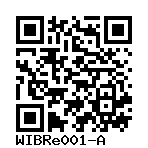WIBR38, WIBR3
WIBRe001-A
General
Donor Information
General Donor Information |
|
| Sex | female |
| Ethnicity | unknown |
Phenotype and Disease related information (Donor) |
|
| Diseases | No disease was diagnosed.
|
| Disease associated phenotypes | no phenotypes |
| Family history | no |
| Is the medical history available upon request? | no |
| Is clinical information available? | no |
Karyotyping (Donor) |
|
| Has the donor karyotype been analysed? |
Yes
46XX
|
Other Genotyping (Donor) |
|
| Is there genome-wide genotyping or functional data available? |
No
|
External Databases (Donor) |
|
| BioSamples | SAMEA104129930 |
Ethics
| Was the embryo established purely for research purposes? | No |
| Have both parents consented to the use of the embryo for ESC derivation? | Yes |
| Has informed consent been obtained from the donor of the embryo/tissue from which the pluripotent stem cells have been derived? | Yes |
| Was the consent voluntarily given? | Yes |
| Alternatives to consent are available? | Yes |
| Alternatives to consent | |
| Alternative consent approval number | NIHhESC-10-0079 |
| Please indicate whether the data associated with the donated material has been pseudonymised or anonymised. | pseudonymised |
| Does consent explicitly allow the derivation of pluripotent stem cells? | Yes |
| Does consent expressly prevent the derivation of pluripotent stem cells? | No |
| Will the donor expect to receive financial benefit, beyond reasonable expenses, in return for donating the biosample? | No |
| Has a favourable opinion been obtained from a research ethics committee, or other ethics review panel, in relation to the Research Protocol including the consent provisions? | Yes |
| Name of accrediting authority involved? | Whitehead Institute for Biomedical Research & NIH |
| Approval number | NIHhESC-10-0079 |
hESC Derivation
| Date of derivation | 2008-11-17 |
| Embryo stage | Blastula with ICM and Trophoblast |
| Supernumerary embryos from IVF treatment? |
Yes
Separation of research and IVF treatment?
Yes |
| PGD Embryo? |
No |
| Derived under xeno-free conditions? |
No |
| Derivation under GMP? |
No |
| Available as clinical grade? |
No |
Culture Conditions
| Surface coating | Matrigel/Geltrex |
| Feeder cells |
No |
| Passage method |
Enzymatically
TrypLE
|
| O2 Concentration | 5 % |
| CO2 Concentration | 5 % |
| Medium |
mTeSR™ 1
|
Characterisation
Analysis of Undifferentiated Cells
| Marker | Expressed | Immunostaining | RT-PCR | Flow Cytometry | Enzymatic Assay | Expression Profiles |
| NANOG |
Yes |
|
|
|
|
|
| SSEA-3 |
Yes |
|
||||
| TRA 1-60 |
Yes |
|
||||
| TRA 1-81 |
Yes |
|
||||
| POU5F1 (OCT-4) |
Yes |
|
|
|
|
Differentiation Potency
Genotyping
Karyotyping (Cell Line) |
|
| Has the cell line karyotype been analysed? |
Yes
46XX
Passage number: 38
|
Other Genotyping (Cell Line) |
|


Login to share your feedback, experiences or results with the research community.